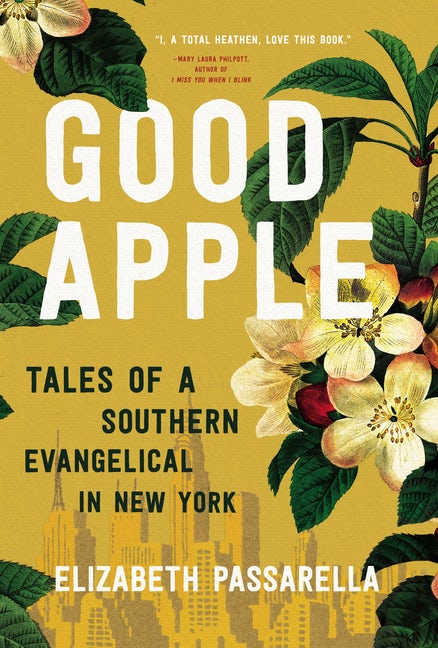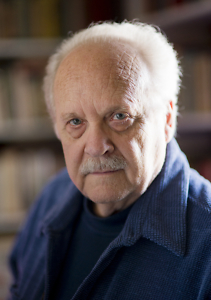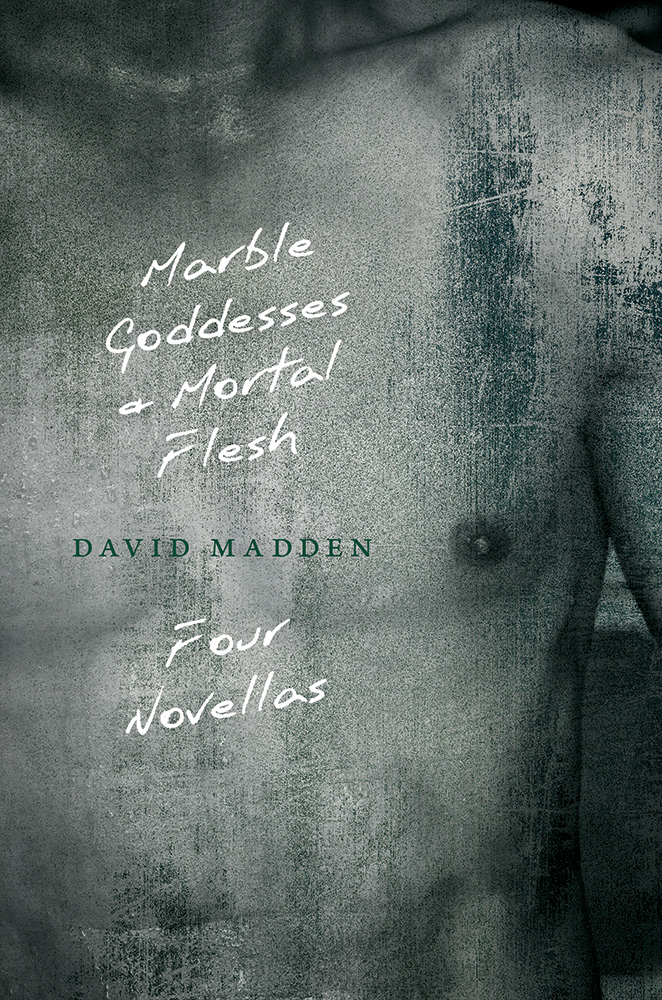Be a Mule
Revered novelist Tim O’Brien talks with Chapter 16 about his forthcoming Nashville appearance with the other Tim O’Brien, a bluegrass legend
For more than thirty years, Tim O’Brien has been regarded as one of the definitive voices of the Vietnam War. A literary trailblazer, he melds fact and fiction in texts that are both starkly realistic and surreal. Winner of numerous awards and honors including a National Book Award for Going After Cacciato (1978), O’Brien is best known for The Things They Carried (1990), a postmodern hybrid of novel and story collection that has become the most widely read and influential work of fiction on the American serviceman’s experience in Vietnam. In anticipation of his forthcoming visit to Nashville to share the stage with Tim O’Brien, the equally legendary Nashville musician, at a special benefit in support of The Porch Writers’ Collective, the novelist answered questions from Chapter 16 via e-mail.
 Chapter 16: Next year marks the twenty-fifth anniversary of the publication of The Things They Carried. That book is regarded not only as the definitive work of fiction about the U.S. infantryman’s experience in Vietnam, but also as a landmark in American literary narrative technique. How has your view of the book evolved in the years since you conceived it? When you set out to write it, could you ever have imagined that it would become a classroom staple at both the college and high-school levels?
Chapter 16: Next year marks the twenty-fifth anniversary of the publication of The Things They Carried. That book is regarded not only as the definitive work of fiction about the U.S. infantryman’s experience in Vietnam, but also as a landmark in American literary narrative technique. How has your view of the book evolved in the years since you conceived it? When you set out to write it, could you ever have imagined that it would become a classroom staple at both the college and high-school levels?
Tim O’Brien: I’m delighted, of course, that The Things They Carried has found a sustained readership. (Authors wouldn’t publish books if they didn’t want people reading them.) I am surprised, though, that TTTC appeals to so many college and high-school students. At least in part, the book is about epistemological ambiguity—What is true? What is truth? Does “truth” evolve? How do we know what we know?—and I had imagined that such questions would frustrate a younger audience in search of absolutes. As I wrote the book, I think I envisioned a pretty sophisticated “literary” readership, if any readership at all. My view of the novel itself has changed little since its publication. The main surprise, I guess, is that I can still read it with an occasional smile of pleasure.
Chapter 16: Just a few weeks ago, Redeployment, a collection of stories about Iraq war soldiers and veterans by Phil Klay, won the 2014 National Book Award. Almost every review of that book has mentioned your obvious influence on the style and substance of the stories. More than a few refer to it as the “The Things They Carried of the Iraq War.” Have you read Redeployment? How do you feel about that book and other emerging examples of war fiction by Iraq and Afghanistan veterans as they write about some of the same kinds of experiences you endured?
O’Brien: No, I haven’t yet read Redeployment. I’m sure it’s wonderful. If Phil Klay and others have been influenced by TTTC, I’m happy to have been part of an ongoing literary tradition. Certainly Hemingway and Dos Passos and Vonnegut and Remarque and Tolstoy and Crane and Homer and many others helped shape my understanding of the sorts of things literature can do, the divergent modes and tones and structures and angles of vision literature can take. Several years ago Norman Mailer whispered to me, “We all stand on one another’s shoulders.”
Chapter 16: When I first talked to you a little over ten years ago, you spoke about the relationship between the Vietnam War and the wars in Iraq and Afghanistan, which were then just beginning. Looking back as a veteran and a fiction writer whose career has rightly or wrongly been defined by your military experience, how would you summarize your feelings about the way our country has used and is using its soldiers in the twenty-first century?
O’Brien: I’m incapable of summarizing my views about the way our country has used and is using soldiers. I’ll just make a couple of observations. Wars are without exception sold to us as pending catastrophes. We’re told that if we don’t go off killing people, terrible things will ensue—dominoes will fall, liberties will be lost, towers will tumble, the streets of San Francisco will be teeming with Viet Cong, mushroom clouds will blossom over Manhattan. Occasionally such dire forecasts contain at least a grain of truth. Most often, not. I’m sickened that America was bludgeoned by the rhetoric of fear to fight a war to get rid of weapons of mass destruction that did not exist.
I’m more sickened that no one seems to care. It would be as if my father had enlisted in the navy in 1941, only to find out two years later, as he dodged death off Iwo Jima, that the Japanese attack on Pearl Harbor had never happened. Or another example: I own a white dress shirt that has a little tag in the collar that reads “Made in Vietnam.” My wife bought the shirt for me at a J.C. Penney store in Austin, Texas. Catastrophe? We lost that war—the worst imaginable outcome occurred. So where’s the catastrophe? Three million dead Vietnamese, almost 60,000 dead Americans, and forty years later we’re buying dress shirts at J.C. Penney that were manufactured in Vietnam. Business is booming. Suburban high-school kids bicycle up and down Highway One in Vietnam. American tourists eat noodle soup in Ho Chi Minh City. Exchange students from Hanoi study in American high schools and universities. Where’s the goddamned catastrophe? Who among us wakes up each morning and thinks, “Oh, dear, we lost in Vietnam, my liberties are gone, my life is ruined, America has been wrecked by the Viet Cong?”
Chapter 16: You mentioned in an interview with The Stanford Daily that you are at work on a book about being an older father. Could you tell us a little about that project and what has inspired you to undertake it?
O’Brien: Yes, I’m trying to write a book about being an older father. That’s about all I can say at this point. I’m not exactly superstitious, but I’ve learned that one can very easily talk oneself out of a book. If one says enough aloud, one has nothing left to say in the book itself.
 Chapter 16: At your forthcoming appearance in Nashville, you will share the stage with another Tim O’Brien, the renowned bluegrass musician. I’ve read that both of you have received each other’s fan mail for years but have never met. Could you make something like this up?
Chapter 16: At your forthcoming appearance in Nashville, you will share the stage with another Tim O’Brien, the renowned bluegrass musician. I’ve read that both of you have received each other’s fan mail for years but have never met. Could you make something like this up?
O’Brien: I’ve received a fair number of email messages that were intended for Tim O’Brien, the musician. Even a few phone calls. And I understand that he—the “other” Tim O’Brien—has undergone the same experience in reverse. I’m thrilled that we’ll finally have the chance to share a laugh about this.
Chapter 16: You’re also well known to be an accomplished magician, a talent which features prominently in your novel In the Lake of the Woods. Do you see a relationship between your interest in magic and your vocation as a writer? Can we expect to see a few tricks when you come to town?
O’Brien: Oh, yes, I’ll be doing some magic at our joint event in Nashville. I’m terrified, of course. Serious terror. But I know it will end up being pretty cool for us—and for the audience, I hope—to interact and maybe have a bit of fun on stage. This will be brand-new and very, very weird for both of us.
Chapter 16: The event will support The Porch Writer’s Collective, a nonprofit literary center in Nashville designed to encourage and support the efforts of aspiring writers. What’s the best advice or encouragement you can offer to writers just starting out?
Tim O’Brien: I have sparse advice for those who wish to write fiction. Be a mule—be stubborn. Read a great deal and pay attention to how other writers do the things they do. Be a mule—be stubborn. Learn your grammar. Be a mule—be stubborn.

Ed Tarkington holds a B.A. from Furman University, an M.A. from the University of Virginia, and a Ph.D. from the creative-writing program at Florida State University. His debut novel, Only Love Can Break Your Heart, is forthcoming from Algonquin Books. He lives in Nashville.





